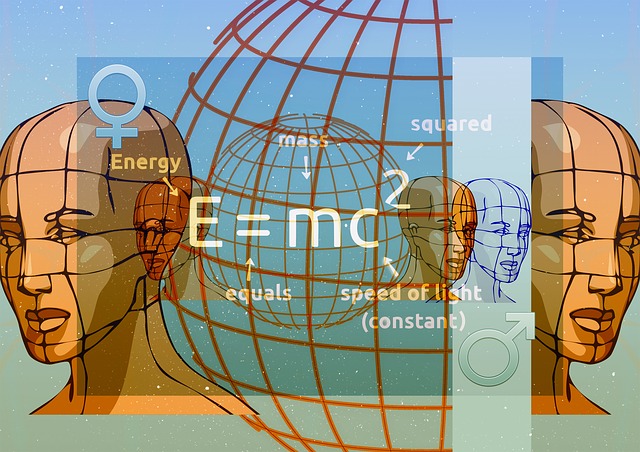My CFO, Drew, and I have coined a term that we use quite a bit at the office. It’s called “Business Sovereignty.” Drew and I are making decisions and taking risks every day as we are running the company, but we believe that it is God who works it all out one way or the other. Like me, Drew also happens to be Presbyterian, which is really neither here nor there, other than we flatter ourselves with our astute choice of Christian denominations to be affiliated with. As good Presbyterians, we believe that although our imperfect free will is involved in all of our business decisions, that still somehow God is able to work all things into His supreme and ultimate will. Hopefully in a way that drives shareholder value, too.
Drew and I do our best as leaders, trying to make good decisions, and choosing good strategies, trying to be smart and getting good advice and hiring good people – but at the end of the day we never really know if we’ve made a good decision until weeks or months later. That’s when you see the results start kicking in, the shareholder value increasing, and the return on your investments (or not). Many times we have had to make decisions without really knowing all the variables and complexities, but we can’t help but notice that most of the time it still works out somehow, even in spite of ourselves. Or sometimes we will start to dabble in some area without giving it much thought, yet later we discover that it has set us up for something brilliant. And we tell each other how brilliant we are, even though we know it was God, not us. It was God’s active predestinating hand involved in our business decisions, even though we were making the decisions by our own choice.
It doesn’t really make sense, this idea of God’s sovereignty and free will, but I still believe it’s true. It’s a paradox. It’s beyond my comprehension. And I got thinking about how God really doesn’t make sense at all, if you are honest about it. We can not expect to logically explain or rationalize God. Yet we try, because we are so entrenched in our Western thought, with its linear thinking and process orientation and sharp corners and lines around everything. We like A to B to C to D. We are educated from early childhood to all be scientists, to believe that the world is logical, factual and can be understood through scientific measurement and experimentation, or else it can’t exist. Many times that goes for our belief in God, too.
This, of course, is the result of our vast progress in knowledge over the last few centuries, since the Renaissance, when some brave renegades realized that the corrupt church was holding back humanity from learning anything. So we entered to the Age of Enlightenment and then the Scientific Revolution, and as the church broke away from government and science, we entered the age of “secularization.” Western society has since exploded in knowledge and technology and productivity. We all benefited greatly from that shift, since it has ultimately led to HDTV (thanks, Galileo). But the other side of it is that we now find it very difficult to think in terms of the spiritual, intangible faith and a Higher Power without asking a lot of questions.
But even the great scientific methodology has its limitations. Philosophers now tell us that secularization has given rise to a new era, called Post-Modernism. Post Modernism pokes little holes into the hermetically sealed container of the scientific approach because is says that objective scientific truth no longer exists. Scientific research itself is now questionable because the individual experimenter’s world-view ultimately poses a bias. Pomo (the cool way to refer to postmodernism) would argue against there being a scientific, philosophical, or religious truth that will explain everything for everybody. The only valid truth is whatever I experience, the way I experience it. Post Modernism is even affecting the idea of Christianity, and questioning what church really is, or should be.
This is all well and good, but I am thinking one step ahead. I have a theory that our society might be on the verge of another paradigm-shift; from an era of post-modernism to what I will call post-post-modernism, if you will. My theory is that this new era in human history will be marked by our ability to accept paradoxical thinking. That’s right, the ability to embrace the truth of two completely opposite ideas, both at the same time. We’re not very good at it right now. People generally want to take sides, lining up on one side or the other. We’re either Democrats or Republicans. Tree-huggers or capitalists. Jocks or nerds. And, theologically speaking, we believe in either Predestination or Free Will. Everyone likes to work within the context of these nice, neat categories. Especially the media, which thrives on their ability to create polarizing opinions. And why not? Taking sides makes life a lot easier, because it allows you to have a frame of reference for interpreting the world.
Paradoxical thinking, however, says that two contradictory and opposing laws or ideas can both be one hundred percent true and valid at the same time. That sounds a little messy, doesn’t it? But apparently the Bhuddists and Hindus find it much easier to practice this type of thing, to hold a belief in two completely contradictory truths. Eastern thought is much more comfortable with the idea of weirdness. But if you try to tell most Western Evangelical Christian Americans that two entirely different, opposing, contradictory views can each be completely true and valid, it’s like their head would explode. Or a war would break out. Especially if it involves doctrine. We’re not smart enough for that. Or maybe it’s difficult for us because we are so intensely schooled in dogma and orthodoxy which has gotten us used to prescribed and “objective” answers for everything. Certainly, dogma has its place as it gives us some security or a point of reference for viewing the world, but it also prevents us from accepting that kind of open-ended thinking.
But this is bound to change over time. Because, ironically, over the past one hundred years the progress of science itself has begun to challenge our Western thinking, most fundamentally in The Theory of Relativity and Quantum Mechanics. You probably learned a little bit about this in your high school Physics class, but didn’t really pay much attention because you were seventeen years old at the time. But now that you are an adult, you might find a renewed interest; because the scientific laws of physics actually appear to be cracking open the mysterious connection between the physical and the spiritual world.
To be continued…
Image by Pixabay













